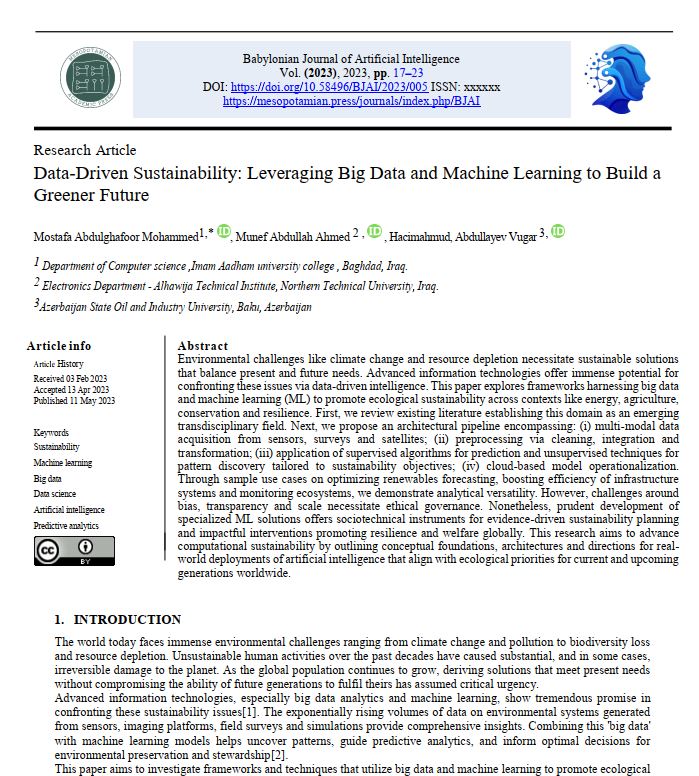Data-Driven Sustainability: Leveraging Big Data and Machine Learning to Build a Greener Future
Main Article Content
Abstract
Environmental challenges like climate change and resource depletion necessitate sustainable solutions that balance present and future needs. Advanced information technologies offer immense potential for confronting these issues via data-driven intelligence. This paper explores frameworks harnessing big data and machine learning (ML) to promote ecological sustainability across contexts like energy, agriculture, conservation and resilience. First, we review existing literature establishing this domain as an emerging transdisciplinary field. Next, we propose an architectural pipeline encompassing: (i) multi-modal data acquisition from sensors, surveys and satellites; (ii) preprocessing via cleaning, integration and transformation; (iii) application of supervised algorithms for prediction and unsupervised techniques for pattern discovery tailored to sustainability objectives; (iv) cloud-based model operationalization. Through sample use cases on optimizing renewables forecasting, boosting efficiency of infrastructure systems and monitoring ecosystems, we demonstrate analytical versatility. However, challenges around bias, transparency and scale necessitate ethical governance. Nonetheless, prudent development of specialized ML solutions offers sociotechnical instruments for evidence-driven sustainability planning and impactful interventions promoting resilience and welfare globally. This research aims to advance computational sustainability by outlining conceptual foundations, architectures and directions for real-world deployments of artificial intelligence that align with ecological priorities for current and upcoming generations worldwide.
